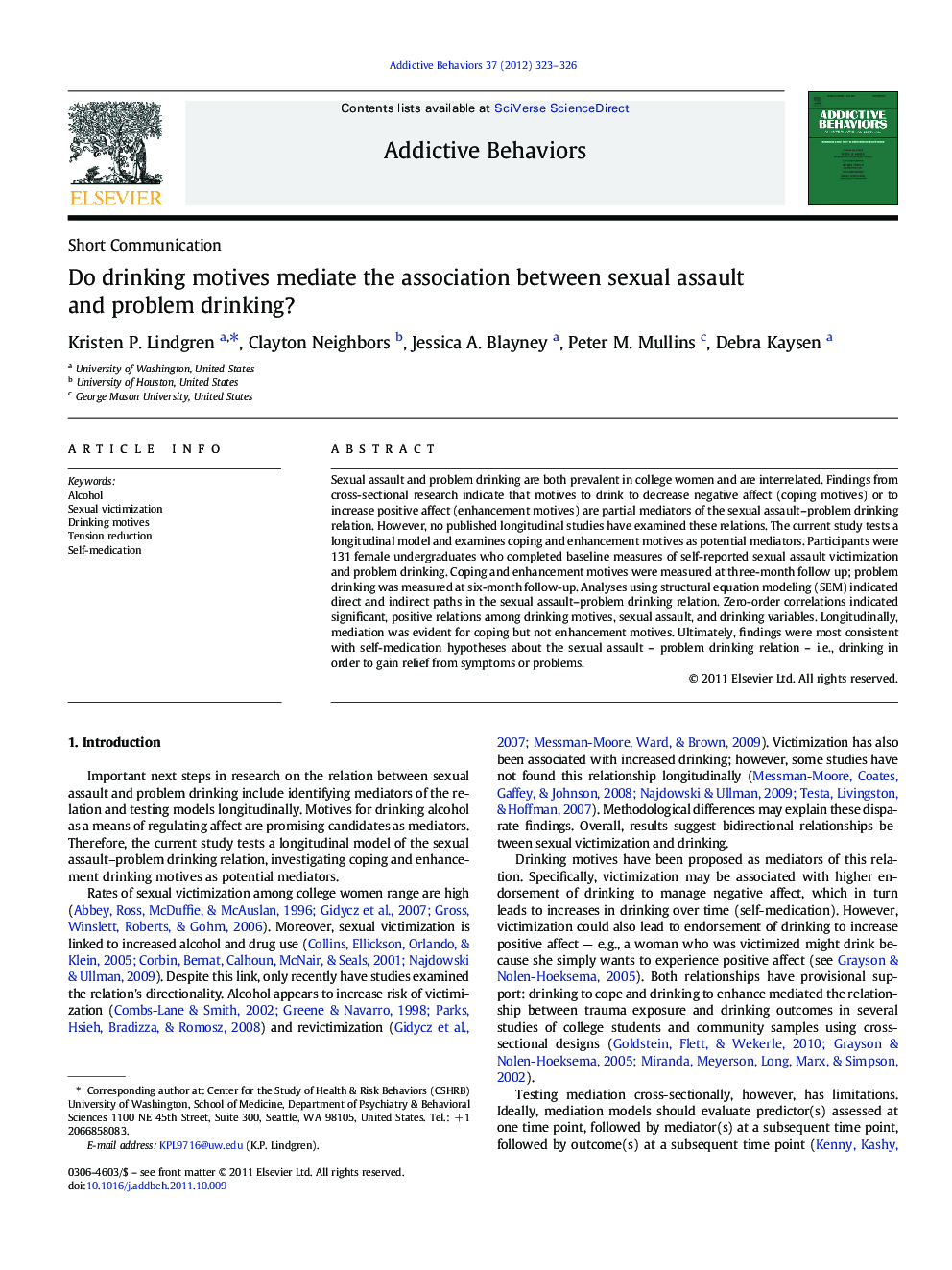| Article ID | Journal | Published Year | Pages | File Type |
|---|---|---|---|---|
| 899283 | Addictive Behaviors | 2012 | 4 Pages |
Sexual assault and problem drinking are both prevalent in college women and are interrelated. Findings from cross-sectional research indicate that motives to drink to decrease negative affect (coping motives) or to increase positive affect (enhancement motives) are partial mediators of the sexual assault–problem drinking relation. However, no published longitudinal studies have examined these relations. The current study tests a longitudinal model and examines coping and enhancement motives as potential mediators. Participants were 131 female undergraduates who completed baseline measures of self-reported sexual assault victimization and problem drinking. Coping and enhancement motives were measured at three-month follow up; problem drinking was measured at six-month follow-up. Analyses using structural equation modeling (SEM) indicated direct and indirect paths in the sexual assault–problem drinking relation. Zero-order correlations indicated significant, positive relations among drinking motives, sexual assault, and drinking variables. Longitudinally, mediation was evident for coping but not enhancement motives. Ultimately, findings were most consistent with self-medication hypotheses about the sexual assault – problem drinking relation – i.e., drinking in order to gain relief from symptoms or problems.
► We investigated the sexual assault–problem drinking relationship longitudinally. ► We tested whether coping and enhancement drinking motives serve as mediators. ► Sexual assault was directly and positively associated with problem drinking. ► Coping and enhancement were positively related to sexual assault and drinking. ► Mediation was supported for coping but not enhancement motives.
